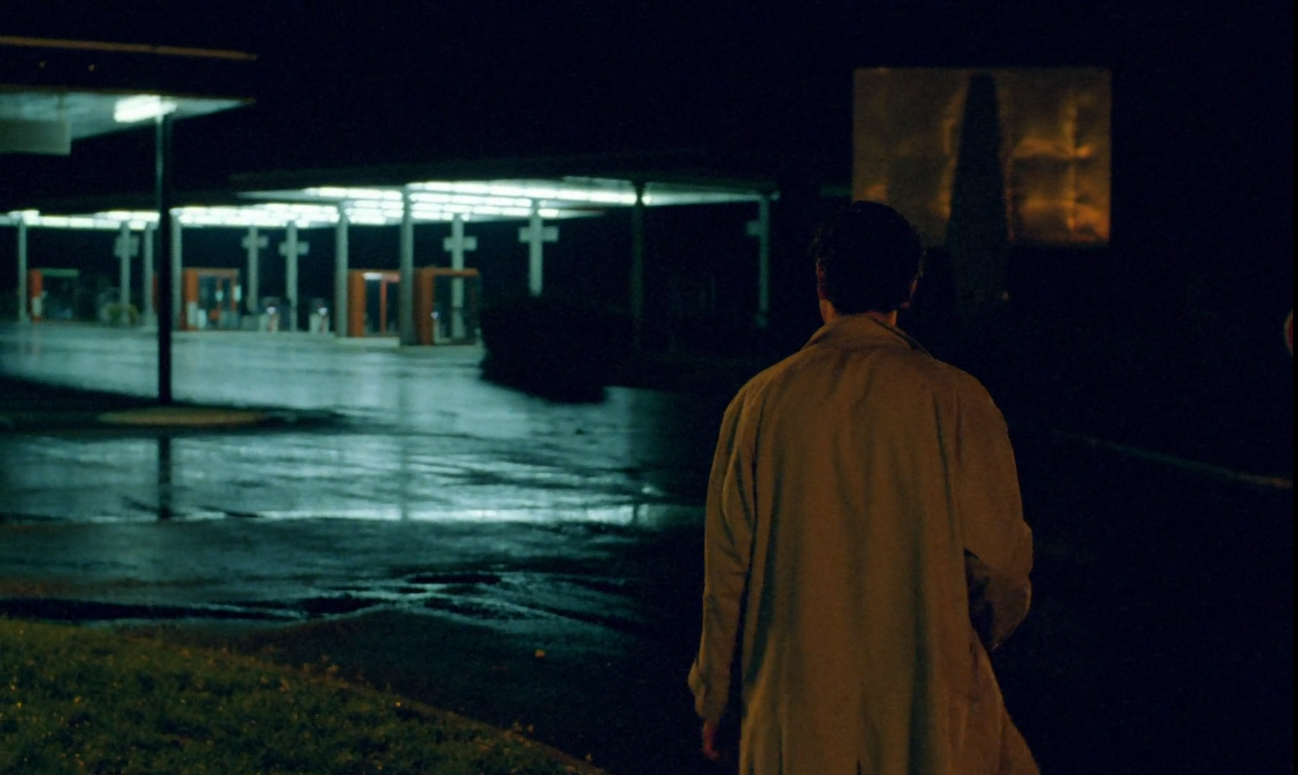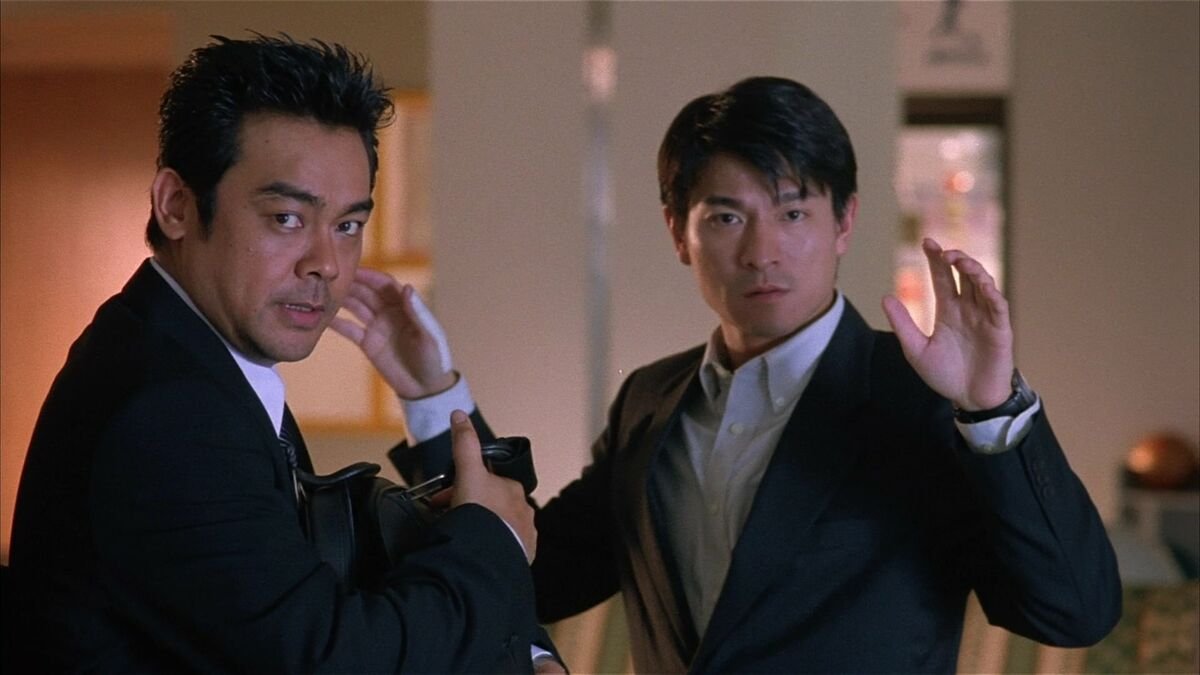Review: The Vanishing (1988)
The Vanishing identifies the reason we obsess over mysteries and then weaponizes that very reason in agonizing, fascinating fashion. In some ways this Dutch film from George Sluizer is a compelling mystery with a classic hook: a young man, Rex (Gene Bervoets), is on vacation with his girlfriend, Saskia (Johanna ter Steege), in the South of France. They take a break at a tourist stop and when Saskia goes to buy some drinks, she never comes back. It’s clear that something bad has happened to her, but Rex is in a foreign land and powerless to do anything about it. She has vanished, and neither he nor the viewer knows what happened to her.
From there, we assume the film will begin an investigation into Saskia’s disappearance, but Sluizer and his co-writer, Tim Krabbé (who wrote the novel upon which the film is based), completely change their approach to the mystery without getting rid of its core appeal. They sidestep the mystery of the “who” or the “why” and instead put all their focus on the “what,” which makes the ensuing hour and a half a fatalistic journey towards answers that have no chance of satisfying our curiosity. They do this by immediately switching the focus away from Rex and onto Raymond Lemorne (Bernard-Pierre Donnadieu), who we suspect is responsible for Saskia’s disappearance, but are unsure how.
Often with mysteries, especially a whodunnit, the identity of the culprit is the main mystery, but Sluizer understands that the “who” or “why” are relatively unimportant when it comes to the mechanics of the genre—they’re almost always revealed after all the genuinely interesting facts of the mystery are revealed—and that it’s the “what” that actually drives our obsessions with this genre. He knows the presentation of the narrative itself holds the true power in the genre. Thus, he scrambles the presentation of this particular mystery, giving us information up front and then stringing us along with the knowledge that the essential question—what happened to Saskia—has not been satisfied by all the other information we’ve been given.
He leaves Rex by the wayside and starts to follow Raymond Lemorne, who has a fixation with the idea of picking up women in his car. We watch him indulge his strange interests and undertake various actions that seem to have perverse consequences when taken in connection to Saskia’s disappearance. We also watch him at his job (he’s a professor) and at home with his family, who seem to suspect that he is not revealing the truth of his extracurricular activities, but still genuinely care about him and all that he provides for them. Through Sluizer’s patient framing of Raymond, watching him go about his activities in long takes with little dialogue, we become fascinated with the mystery of what exactly he is planning and how it connects to Saskia. We also become complicit in his obsessions, watching him fail and try again, which forces us to sympathize with him through sheer repetition; we begin to want to see him succeed, simply because we have watched him fail for so long.
About halfway through The Vanishing, it becomes evident that Sluizer and his fellow filmmakers are not actually interested in surprising the viewer with information but actually want to use the viewer’s curiosity against them. They make it so that the question of what happened to Saskia overrides all other considerations, whether moral accountability or justice. This is clarified when Rex returns to the narrative, now three years older, but still obsessed with the mystery of what happened to her. Sluizer shows how our own curiosity as a viewer mirrors Rex’s obsession as a character, preying upon the fact that knowledge is addictive and all-consuming.
This reconfiguring of the presentation of the mystery comes to a head late in the film when Rex and Raymond meet and the viewer is confronted with the fact that we watch mysteries with a pathological need to understand the totality of narratives, with no consideration for justice or the wellbeing of the characters involved. Thus, the film pays off its startling act of subversion with a haunting ending that lays bare the fatalism at the heart of mysteries themselves. I am avoiding drawing out the specifics of the conclusion in case you haven’t seen the film for yourself, not because the film features a shocking twist, but because the inevitability of its ending is all the more devastating when you don’t know the details of what’s coming.
Often when we talk about subversion is film, we talk about a movie that cleverly reorders or flips our understanding of generic conventions in order to still conventionally satisfy us in the long run. But true subversion destroys the very foundations of something, which is what The Vanishing does. It’s among cinema’s most savvy subversions, proving that not only are the tenets of the mystery genre imminitely exploitable, but also potentially destructive and poisonous; that in our attempts to discover the truth behind a mystery caused by awful acts, we throw all human considerations to the wind and become no more recognizably human than the people who commit such acts out of curiosity.
Because just as a killer may be driven to kill purely out of curiosity for what will happen if he or she does so, we as viewers are driven to discover the answers behind a mystery purely because they are denied us, with no consideration for whether justice is served in doing so. That The Vanishing explores all of this while also satisfying the thrills of the mystery genre proves that it’s a genre provocation like few others.
9 out of 10
The Vanishing (1988, The Netherlands/France)
Directed by George Sluizer; written by George Sluizer and Tim Krabbé, based on the novel The Golden Egg by Krabbé; starring Bernard-Pierre Donnadieu, Gene Bervoets, Johanna ter Steege, Gwen Eckhaus.



George More O’Farrell’s The Holly and the Ivy is a perceptive Christmas drama that deserves a place in the Christmas rotation.